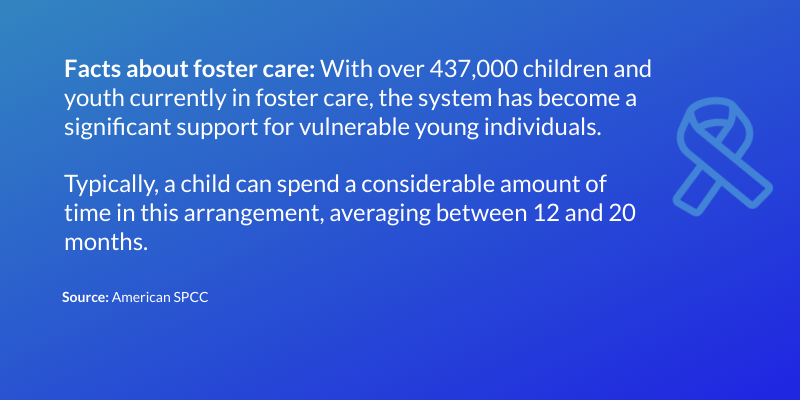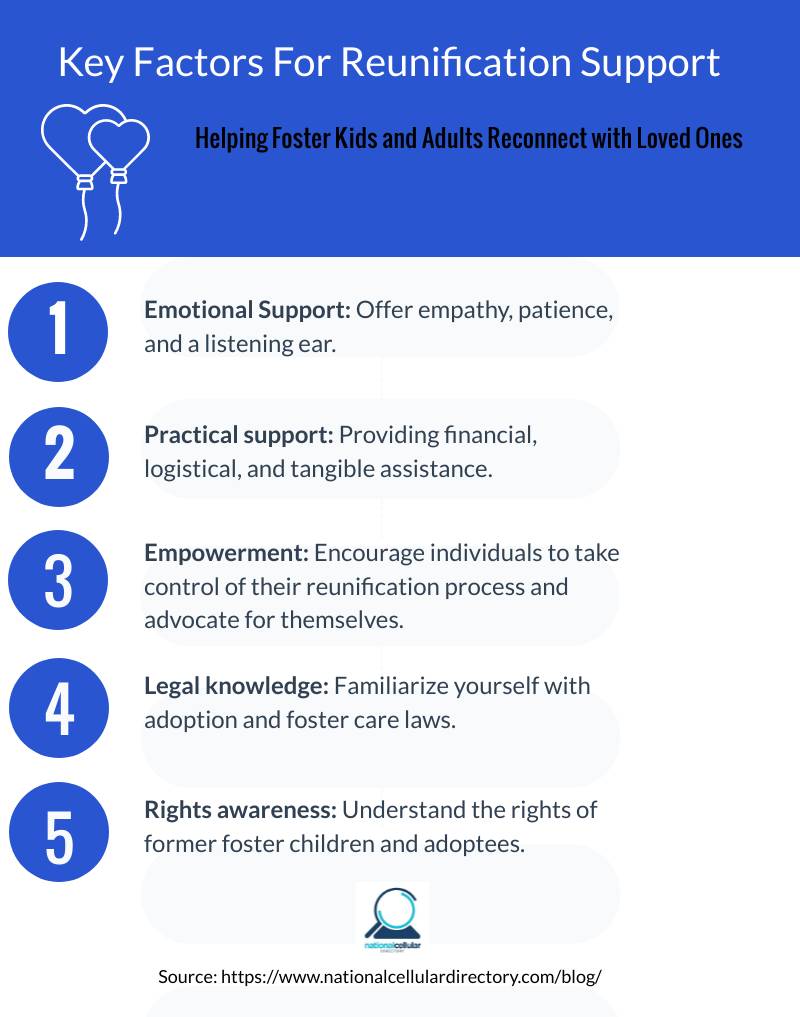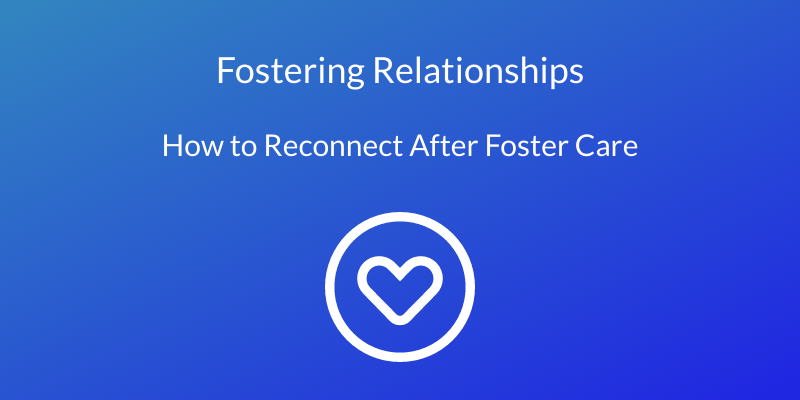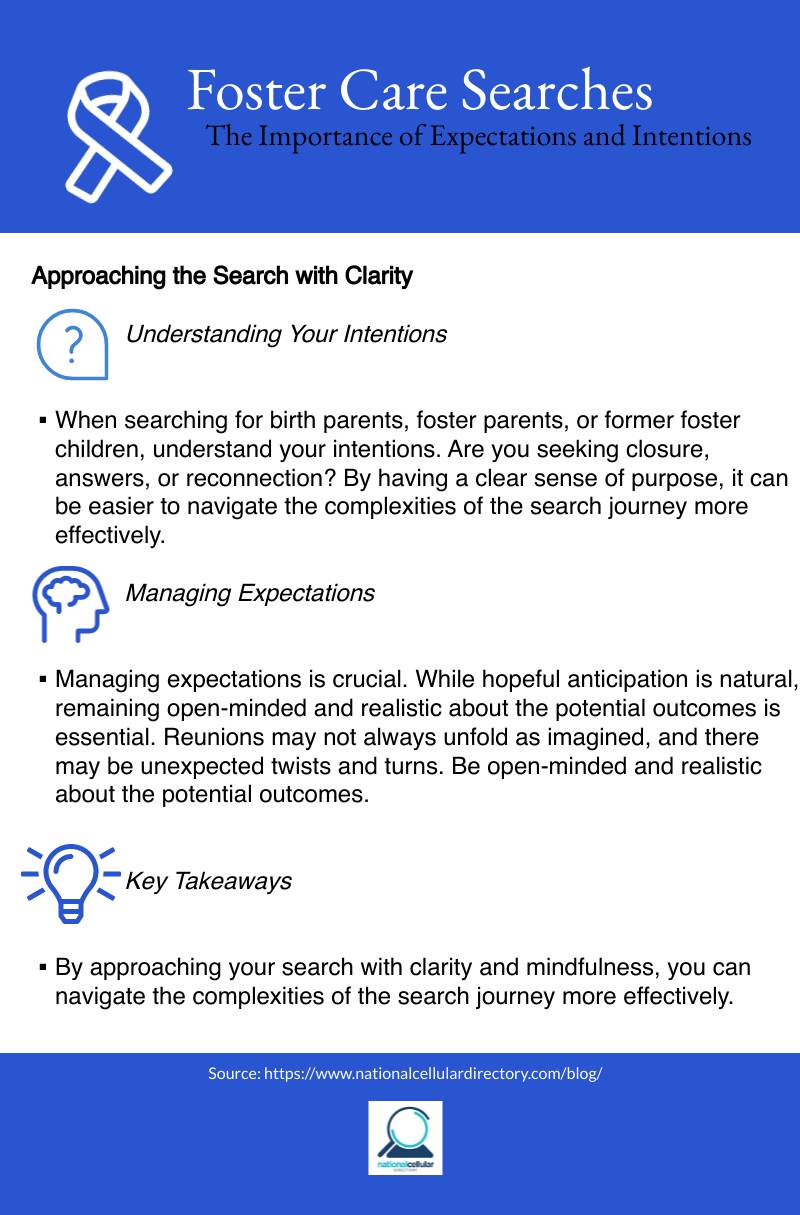This Foster Care Month, we thank foster parents and caregivers for their selfless dedication to providing love and support to children in need. Your kindness and commitment make a lasting impact on young lives.
Thank you for building brighter futures.
Foster care can be a complex and emotional experience for all those involved. Whether it's a former foster child trying to reconnect with past caregivers, a foster parent looking to locate a child who might have been lost to the system, or an individual searching for their birth parents, each situation comes with its own set of challenges and rewards.
The experience of foster care can be complex, with emotions that vary depending on individual circumstances and relationships. It is important to recognize that each person's experience with foster care is unique and can involve positive and negative moments.
Navigating Relationships after the Foster System
Facts about foster care: With over 437,000 children and youth currently in foster care, the system has become a significant support for vulnerable young individuals. Typically, a child can spend a considerable amount of time in this arrangement, averaging between 12 and 20 months.

These foster care statistics highlight the commonality of foster care and emphasize how foster care children, on average, spend enough time within the system to develop close bonds with their foster parents and vice versa despite the challenges and uncertainties they face.
The experience of being in foster care can create a desire to reconnect with others outside of the system.
As former foster children grow older, they often face challenges with their identity and reconnect with former caregivers. Despite the difficulties in finding their former foster parents, a strong desire for connection and understanding can help people overcome these obstacles.
When foster parents reunite with their former foster children, it can be emotionally challenging for both parties. The bond between a caregiver and a child can be profound, and navigating the complexities of this reunion can be difficult.
It's common for individuals who have been adopted to desire to reconnect with their birth parents to explore their sense of identity and belonging. The search for birth parents is often a highly personal and emotional journey characterized by moments of hope, uncertainty, and discovery.
Supporting Reunification
How to help foster kids and adults: It is crucial to provide individuals with the necessary resources, guidance, and understanding during the process of reunification. If you know someone undergoing this journey, these key factors can support them in reconnecting with their loved ones.
Moreover, it's crucial to have a clear understanding of the legalities surrounding adoption and foster care, as well as the rights of former foster children and adoptees. With this knowledge, we can better serve these individuals and ensure that their rights are protected throughout the process.

Expectations and Intentions for Foster Care Searches
When embarking on a search for birth parents, foster parents, or former foster children, it's crucial to approach the process with clarity and mindfulness. Understanding the intentions behind the search is key—whether it's driven by a desire for closure, a quest for answers to longstanding questions, or simply a longing to reconnect with someone from the past. By having a clear sense of purpose, individuals can navigate the complexities of the search journey more effectively.
Equally important is managing expectations. While hopeful anticipation is natural, remaining open-minded and realistic about the potential outcomes is essential. Reunions may not always unfold as imagined, and there may be unexpected twists and turns. By acknowledging and accepting the uncertainties, individuals can approach the search process with fair expectations.
Foster Care Searches

When searching for birth parents, foster parents, or former foster children, it's important to use available resources responsibly and with respect for privacy. Online databases, social media platforms, and people search services can provide helpful information and connections, but it's important to interpret the information cautiously. Approach every search result and database entry with empathy and sensitivity towards all parties involved. This will help you conduct your search ethically and with dignity for everyone concerned.
When it comes to searching for birth parents, foster parents, or former foster children, people search services like the National Cellular Directory can be the most valuable tool. These services gather information from various public records and online sources, offering users access to a vast database of contact details and other relevant information. Therefore, there is less of a need to search for contact information and other personal information.
The National Cellular Directory also offers a free service to help assist people with connecting who can't afford to pay. Their free search service, coined National Cellular Directory's Happy Hour search, offers a cool perk: Anyone who has a free account can search for free daily.
People search services are online tools that help individuals locate up-to-date contact information for people, even when they have limited details. . These services come in handy when trying to reconnect with individuals who may have been lost touch with over time or finding someone's location with just a name, phone number, or address.
People associated with the foster care system can benefit from people search services to find updated contact information as well as uncover additional details about individuals, such as their relatives or past addresses. Broader knowledge can help anyone make informed decisions and ultimately lead to more positive outcomes.

Final Steps and Legal Considerations
Looking for birth parents, foster parents, or former foster children can be a challenging and emotional journey. Also, it can be an intense experience that requires patience, resilience, and a willingness to confront uncertainties. It's important to understand that this process can be positive and negative.
On one hand, finding long-lost family members can be a healing experience, bringing closure to past traumas and strengthening relationships. Reunifying with loved ones can bring about a sense of belonging, identity, and meaning that can help one move forward.
On the other hand, the search can sometimes be frustrating and even traumatic. Navigating the complex legal, social, and emotional landscapes of the reunification process can be challenging. Moreover, confronting the uncertainties and potential disappointments that may arise along the way can be challenging.
Therefore, it is essential to approach this journey with caution and support. It is advisable to also seek guidance from experienced professionals who can help you navigate the process and provide emotional support.